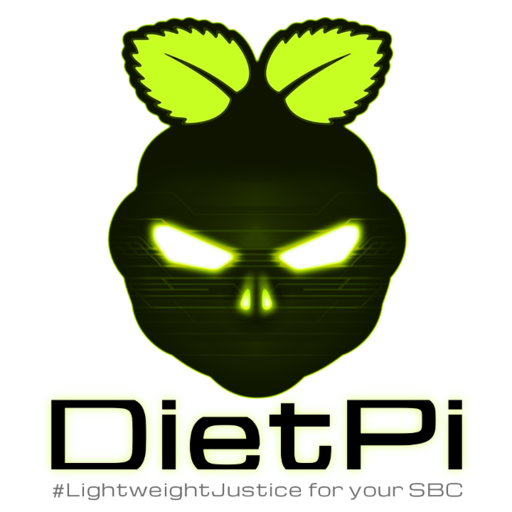|
Support the DietPi Project (Donations, Contribution)
|





|
8
|
114011
|
2 March 2025
|
|
Home Assistant causing dietpi to hung
|





|
25
|
116
|
4 July 2025
|
|
(Beelink) AMD AI9HX370 wrong temperature with cpu command (htop is OK)
|



|
6
|
22
|
3 July 2025
|
|
Linux-image-amd64 - The following packages have been kept back
|



|
11
|
18
|
3 July 2025
|
|
MEGAcmd on DietPi
|


|
4
|
26
|
3 July 2025
|
|
No static Mac address since v9.7.1
|





|
40
|
398
|
2 July 2025
|
|
Home Assistant Launch Error [cannot import name OrPattern]
|





|
4
|
28
|
2 July 2025
|
|
DietPi on BananaPi M5 bootdelay when headless
|



|
12
|
125
|
2 July 2025
|
|
Auto setup for headless installation fails to start
|



|
7
|
20
|
2 July 2025
|
|
ROCK(Pro)64 won't boot with Linux 6.12
|





|
41
|
498
|
1 July 2025
|
|
Laptop installer not detecting HDD
|


|
1
|
14
|
1 July 2025
|
|
UPMPDCLI instllation
|



|
2
|
23
|
1 July 2025
|
|
Randomly can't SSH into my DietPi install but can ping
|


|
3
|
31
|
1 July 2025
|
|
ACPI - What would be the best way to install it?
|


|
11
|
44
|
30 June 2025
|
|
Sd card to SSD migration on Raspberrypi4. (rpi-clone or..?)
|


|
1
|
19
|
30 June 2025
|
|
Raspberry PI 4 Argon One M.2 case, M.2 SSD inaccessible after a random amount of time
|




|
11
|
63
|
30 June 2025
|
|
Rock5a Fan control
|


|
1
|
19
|
29 June 2025
|
|
Moonlight removed from Software list?
|




|
8
|
62
|
29 June 2025
|
|
No autostart to Desktop as user
|



|
17
|
96
|
29 June 2025
|
|
RPI Zero v1 Fails boot with over_voltage=-2 -200mV energy savings setting in dietpi-config
|

|
0
|
12
|
27 June 2025
|
|
How to Connect to a Samba Server
|


|
8
|
85
|
27 June 2025
|
|
No sound card detected for Opi zero 2w
|





|
127
|
2370
|
27 June 2025
|
|
Debian 12 ARM64 on Apple Silicon with UTM converted to DietPi - Fails
|



|
6
|
222
|
27 June 2025
|
|
Unbound dietpi.conf - do we need module-config line?
|


|
2
|
30
|
27 June 2025
|
|
How to backup an entire SD Card over a network
|


|
3
|
58
|
27 June 2025
|
|
Help with Chromium autostart
|


|
4
|
35
|
27 June 2025
|
|
AdguardHome + Unbound unstable connections and cannot load websites sometimes
|





|
59
|
349
|
25 June 2025
|
|
Failed to start systemd-timesyncd.service error during update attempt
|



|
7
|
38
|
25 June 2025
|
|
No download for older Dietpi Versions available!
|


|
1
|
35
|
25 June 2025
|
|
Home Assistant : Obsolescence notice
|


|
1
|
38
|
25 June 2025
|